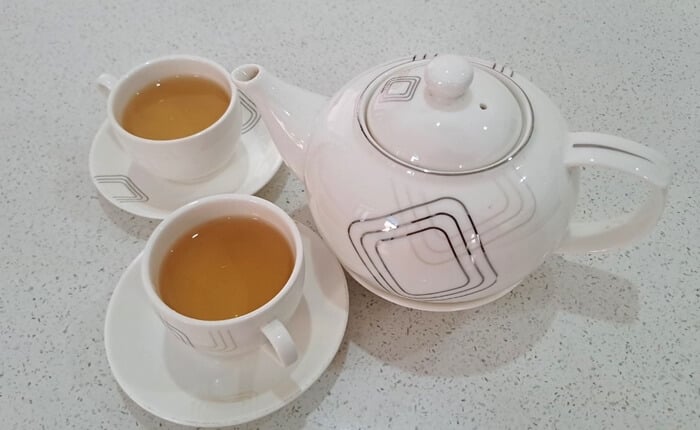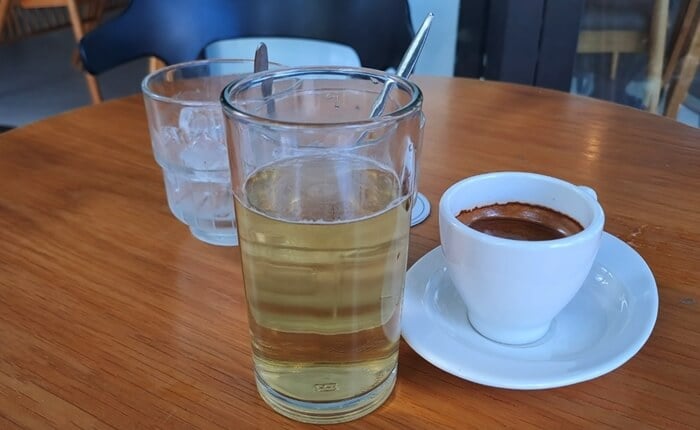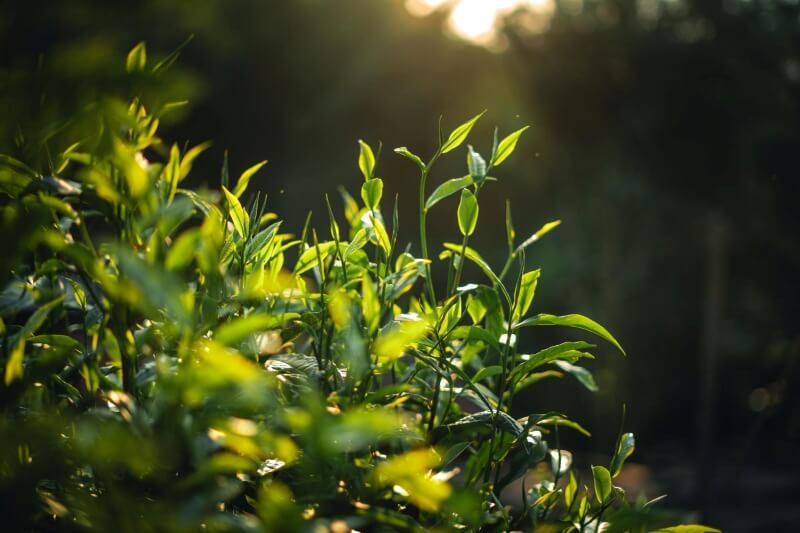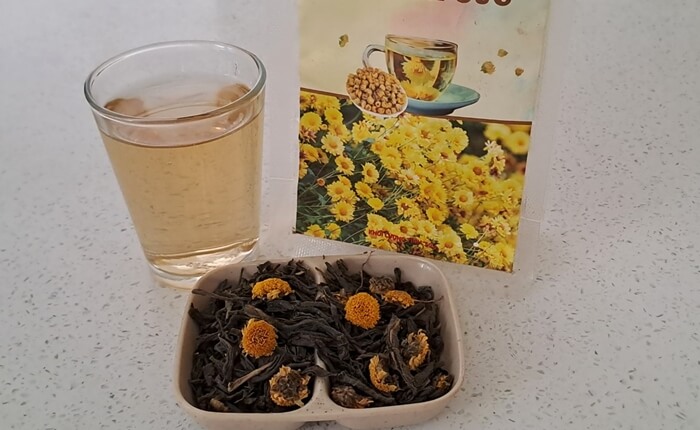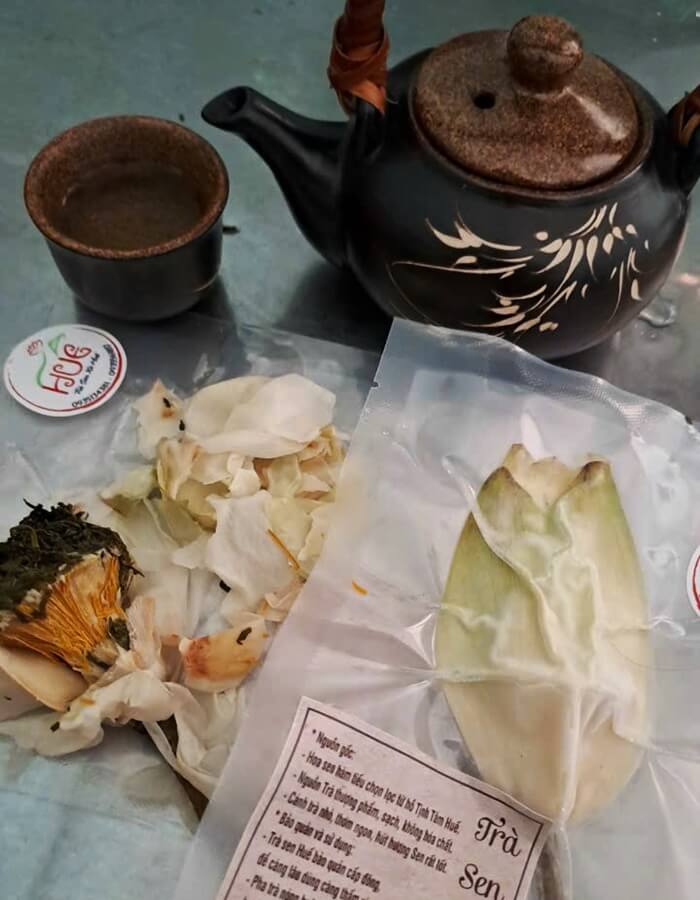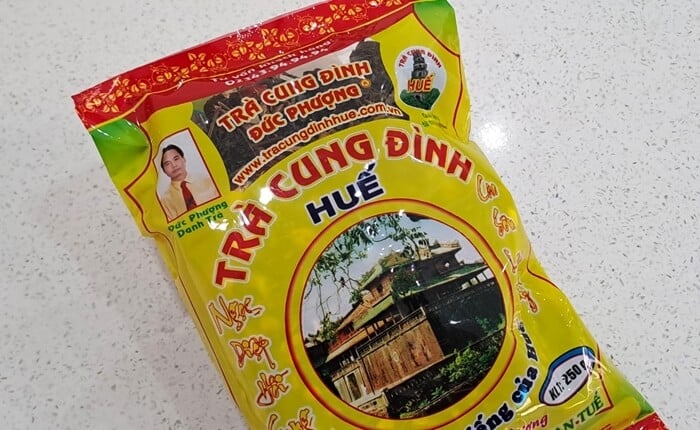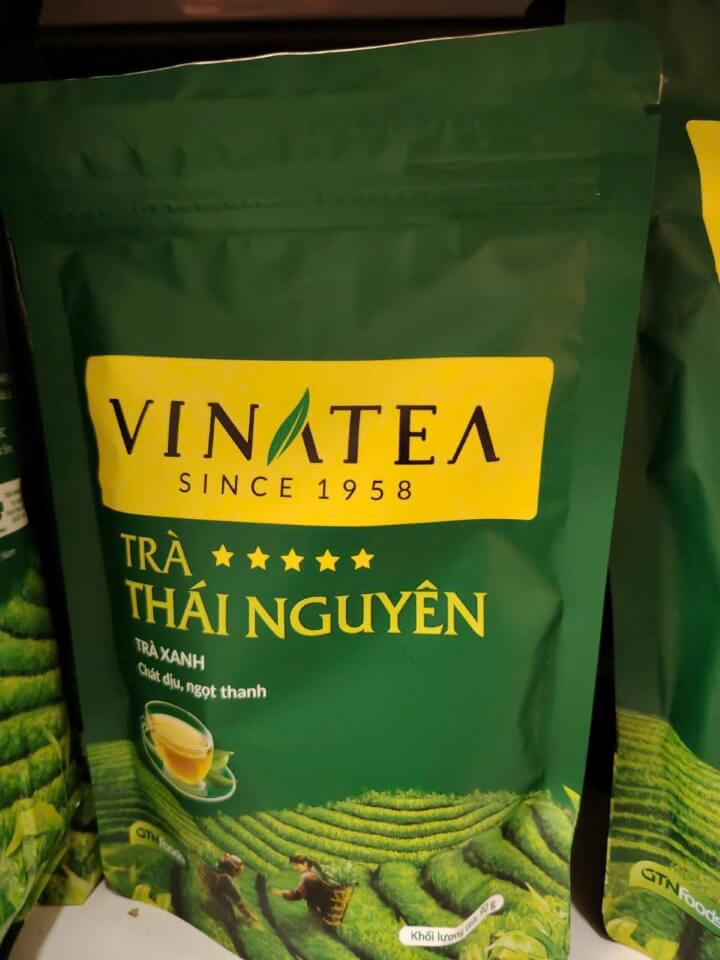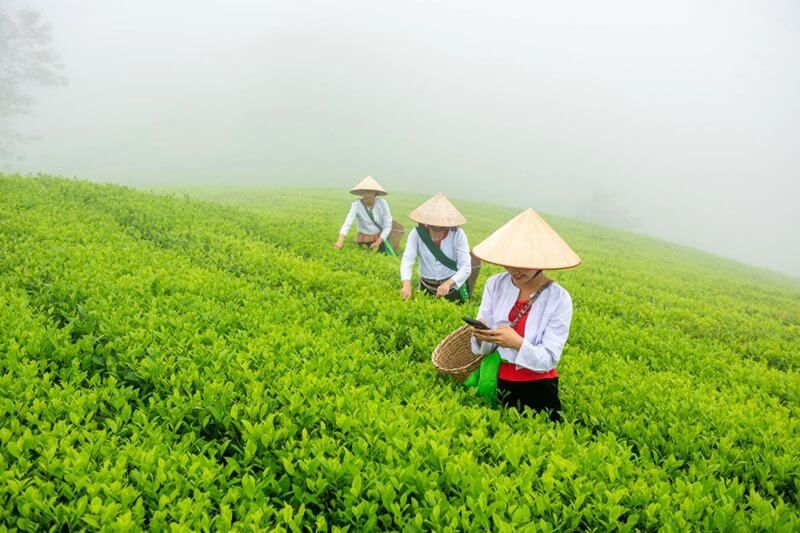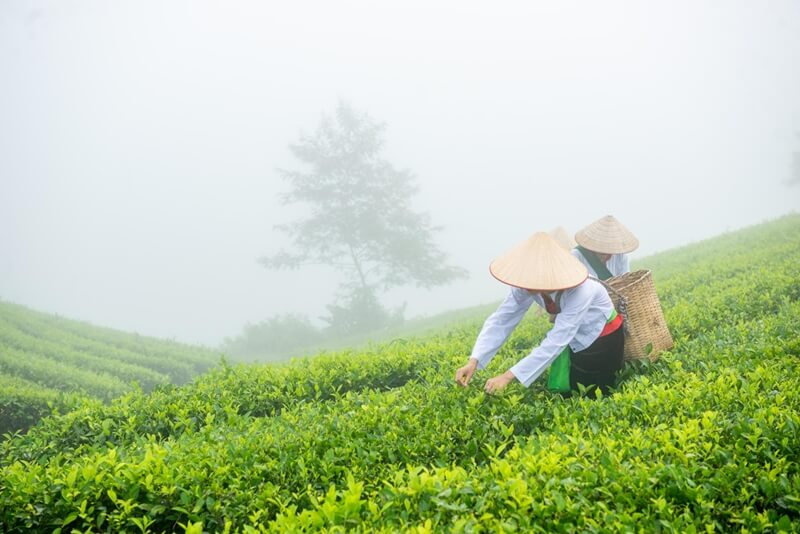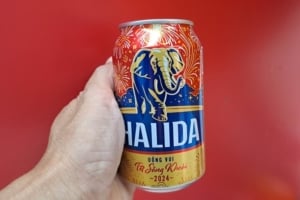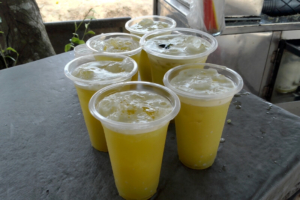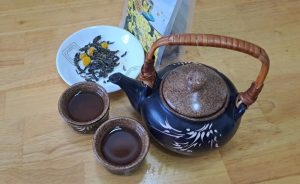A popular drink presented anytime and anywhere in daily Vietnamese life is tea.
This unique drink is vital in shaping the local culture and style of welcoming friends and visitors.
Let’s take a closer look at the aspects of Tea in Vietnam!
1. Tea Culture in Vietnam
Many people believe drinking tea habits came from China and entered Vietnamese life thousands of years ago. No one remembers when or where it started; they only know that it is essential to Vietnamese eating and drinking habits.
A legend story tells about the tea’s origin: There was a man in the forest picking herb leaves. While resting and cooking water under a tree, accidentally, a leaf fell into the pot. He found the water became a beautiful color and a faint fragrance. Try drinking a few sips, and he felt refreshed. Then, he took this tree to plant and popularize it in the country. He called it “Tea.”
Nowadays, the custom of drinking tea is spreading around Vietnam and many Asian countries. For example, when you drink coffee at most coffee shops in Vietnam, a cup of golden water is served for free. Many foreign tourists mistake it for beer when they first see it, but it is tea.
When you visit a local family, they often serve you a few cups of tea because the people think that tea is the beginning of all stories.
Tea has become essential in spiritual culture, so it also appears in Vietnamese weddings, called a “Tea Party,” served with cakes and fruits. This small party is a part of welcoming guests, friends, and relatives to attend the wedding. While waiting for the main ceremony and party, the “Tea Party” will warm everyone’s heart.
Many tea shops in Vietnam were built to serve more tea for customers, supplying different types of tea, from affordable prices to very high rates for a wide range of customers.
In short, tea is part of spiritual life and culinary culture. Vietnamese people drink tea at any time of the day, whether it’s morning, noon, or night. They drink tea not only for themselves but also to invite guests and friends.
2. Various Types of Vietnamese Tea
Compared to Vietnamese coffee, tea is no less rich. You will find many different types of tea in shops, markets, and even famous supermarkets in Vietnam.
Here are a few popular Vietnamese teas to try.
2.1. Green tea
Green tea, also known as fresh tea, ranks first among teas in Vietnam. The aroma of this tea is very light, and the smell of green leaves creates a feeling of freshness.
This tea is easy to cook and drink and suitable for all ages. It is cooked directly from fresh tea leaves, not processed or marinated.
Wash the tea leaves and boil them in a pot. For extra flavor, add a few slices of fresh ginger or lemongrass.
2.2. Dry tea
This tea type is processed by drying green tea leaves when owners cannot sell them all.
With increasing demand, many tea farms are growing to collect the leaves, which the owners process into dry tea.
Thai Nguyen Province in North Vietnam and Bao Loc District – about 120km from Da Lat City (in Lam Dong province, the Central Highlands) have become famous tea growing and processing areas.
There are two types of dried tea: original dry tea, which means that only green tea leaves are dried and then preserved for long-term use. Second, dried tea is marinated or mixed with other flavors, such as jasmine or chrysanthemum.
To drink this dry tea, you simply need to put it in a cup and add boiling water. The result will be a flavorful cup of tea.
2.3. Chrysanthemum tea
In the dry tea group, chrysanthemum tea is also processed by adding tiny chrysanthemum flowers to tea to create a flavor– mildly fragrant and lightly sweet.
If more chrysanthemum flowers are added, this tea will become a sleep drink that can support sleeping.
Chrysanthemum tea is usually enjoyed in the afternoon or autumn when baby chrysanthemums are in full bloom.
2.4. Jasmine tea
This type of dry tea is popular all around Vietnam because it is carefully packed, easy to transport, and has a long shelf life. You can find it at grocery stores in Vietnam.
Besides the light scent of jasmine flowers, this tea kind can create mild or strong bitter tastes depending on the amount of tea, more or less.
Just like how to make dry tea, you put it in a cup and add boiling water, and that’s it. You can boil it, but this method can reduce its flavor.
2.5. Lotus tea
Lotus tea is marinated and processed more sophisticatedly. It is considered one of the most elegant teas in Vietnam.
Tea makers choose high-quality dry tea, place it in blooming lotus flowers, and tie it to let the lotus aroma permeate into the tea.
There are two ways to marinate lotus tea:
- First, tea is put into the blooming lotus flowers in the lake every late afternoon. The following day, when it is still early morning dew, the owner comes to collect tea from each lotus. In this way, lotus flowers can also bloom.
- In the second way, the tea makers cut the lotus flowers and put tea in the lotus. They can then dry the lotus flowers and pack them to sell to users.
2.6. O Long tea
O long tea is made from green tea leaves like the ones above. However, the processing method is different, especially the fermentation process, which creates enzymes for tea.
This tea tastes different from regular teas, with light sweetness, gentle aroma, and golden tea water.
2.7. Hue royal tea
A special tea dates back to the Nguyen Dynasty in the Imperial Citadel of Hue. This drink is a typical herbal Vietnamese tea because it combines various herbs into one.
The tea tastes sweet and has a slight floral fragrance. Hue royal tea creates a feeling of coolness in the body, helping one sleep well.
This tea is packaged in bags and sold in many places in Hue. You can buy royal tea at the Dong Ba market or supermarket.
3. A few famous tea brands in Vietnam
Many companies are producing and trading tea in Vietnam. To help you find the right tea products, we recommend a few well-known Vietnamese tea brands below:
3.1. Vinatea
With a legacy dating back to 1958, Vinatea is a pioneer in the tea industry, renowned for its long-standing Vietnamese tea brand and the distinctive light aromatic flavor of Thai Nguyen teas.
With a diverse range of over ten renowned product brands, Vinatea offers a wide selection of popular tea, herbal tea, and high-class tea, each with its unique flavor and quality.
Prices vary depending on each type, but 80 grams of special tea made from buds selected from Shan Tuyet tea trees costs 25,000 VND to 1,500,000 VND.
- Company name: Vinatea Food and Beverage Joint Stock Company
- Factory address: Thai Phu Village, Mai Dinh Commune, Soc Son, Hanoi
- Hanoi Showroom address: 46 Tang Bat Ho, Hai Ba Trung, Hanoi.
- Ho Chi Minh City showroom address: 203 Street 29, Binh Tri Dong B, Binh Tan, Ho Chi Minh City.
Phone number: 0911933338
3.2. Loc Tan Cuong Tea
Loc Tan Cuong Co., Ltd is a tea brand of the Thai Nguyen region, headquartered in the Thai Nguyen province. The company specializes in producing premium teas thoroughly tested according to VietGap standards.
Currently, the company provides more than 15 different types of tea to domestic and foreign customers. The company has representative offices in Hanoi and Ho Chi Minh City.
- Company name: Loc Tan Cuong Co., Ltd
- Address (Manufacturing Factory): Nam Hung Hamlet, Tan Cuong Commune, Thai Nguyen City, Vietnam
- Phone: 0933 862 589
- Website: https://loctancuong.com
3.3. Tan Cuong Xanh Tea
This tea brand is a reputable company that produces and processes Thai Nguyen tea. The company has its head office in Hanoi and branches in Ho Chi Minh and Da Nang.
Tan Cuong Xanh has over 30 different tea products from which customers can choose. The company’s featured products include Dinh Tea, Hook Tea, and High-Quality Tan Cuong Tea.
- Company name: Tan Cuong Xanh Co., Ltd
- Address: No. 2, Lane 31/26 Tran Quoc Hoan, Dich Vong Hau Ward, Cau Giay District, Hanoi, Vietnam
- Phone number: 0983412602
- Website: https://tancuongxanh.vn
3.4. Bao Tin Tea
Bao Tin is a famous Vietnamese tea brand in Bao Loc, Lam Dong province, Vietnam. The company is situated in the famous tea-planting area in the southern mountains of the Central Highlands. It uses fresh ingredients to process into tasty tea packages.
This company has six main products: pure green tea, canned tea, boxed tea, jasmine tea, lotus tea, and panda ginseng tea.
Bao Tin’s products are generally aimed at ordinary customers, so their prices are relatively low.
- Company name: Bao Tin Tea
- Address: 526 Tran Phu Street, Loc Tien Ward, Bao Loc District, Lam Dong Province, Vietnam
- Phone: 0913 181 808
- Website: www.baotintea.com
As you explore Vietnam, you will find many names in the tea industry in addition to the tea brands listed here.
4. The ways to discover tea culture in Vietnam
Learning about growing, processing, and drinking tea is exciting for your Vietnam adventure.
There are two famous tea-growing regions that you can refer to add to your program, including the tea-growing area in Tan Cuong (Thai Nguyen Province), located in the northern region of Vietnam, about 90km north of Hanoi.
The second tea-growing area is Bao Loc City in Lam Dong Province. It is situated on a famous tourist route from Ho Chi Minh City to Da Lat, about 205km from Ho Chi Minh City and 120km from Da Lat.
Coming to these areas, you will see the vast, neatly lined green tea fields on the hills. Fresh cups of tea will be served for guests to enjoy.
However, if you cannot go to these areas, you can enjoy tea cups in big cities like Ho Chi Minh, Hanoi, and Hue City. You can taste it at shops specializing in the tea business.
Drinking tea at tea shops is more interesting than visiting the original tea-planting regions. Going to the tea fields is just to visit, to learn about tea trees and how tea leaves are made.
These farms do almost all tea-growing and processing businesses. However, they do not specialize in serving beverages, so the service at this location is not excellent.
FAQ about Vietnamese tea
Where should I buy tea in Vietnam?
Although tea is sold in almost all shops in Vietnam, we recommend buying it in supermarkets that offer fair and clear prices.
How much for a tea bag?
Customers often check tea with a gram even though it is in the bag. You will check how many grams are in each bag.
A normal tea costs 20,000 VND per 100 grams, while a few unique teas can cost 100,000 VND per 100 grams.
Thus, tea price is flexible depending on the gram and tea quality.
Do the shops sell hot or cold tea?
Specific tea shops specializing in selling tea often serve hot tea. In this way, it can keep its original flavor and taste.
In coffee shops, cold tea is often available. To make it cool, normal ice is added to the tea, so this feature needs to be noticed because almost all ice comes from tap water.
Can I use tea as a gift to Vietnamese people?
Yes, of course. But, most young people like other things more than tea because there are various tasty drinks in Vietnam, such as milk tea or fruit juice.
This means that tea is suitable for people aged 50 years and older.
In short, tea is a common beverage for Vietnamese people. Green tea can be served freely in a coffee shop or a small eatery.
If you want to enjoy high-quality teas, you should go to shops that specialize in tea drinks.
When you are an international visitor to Vietnam and want to buy tea as a gift, the supermarket is a good place to go. There, you can easily choose from a variety of teas at affordable prices.
Do you want to enjoy Vietnamese tea? Call us when you and I are in the same city in Vietnam.

